

Marketing management is a critical factor which directly influences the organic growth and sustenance of any organization. It is with this premise that that PGDM Marketing program has been designed. This program teaches students how to devise and deploy effective marketing strategies to counter any challenges in business. The program comprises of 4 semesters spanning over 2 academic years. The present in-take of the program is 60 seats.
Program Objective:PGDM in Marketing Management prepares students to develop as effective managers and leaders who are able to use their functional knowledge to address business challenges in a socially and ethically responsible manner. The program aims to hone knowledge of the marketing function while also gaining an overall understanding of other related disciplines. In addition, the program also focuses on developing an entrepreneurial mindset, and the ability to think and act creatively and proactively.
The programme is
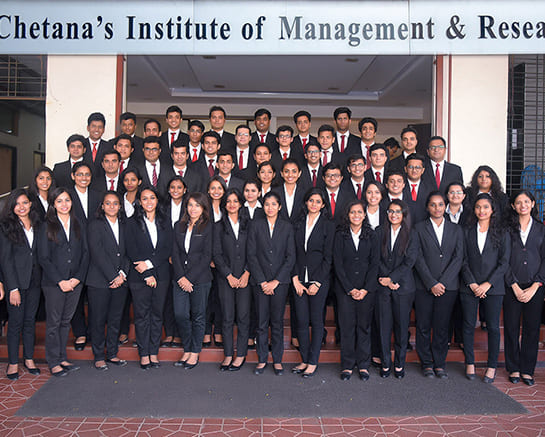
To develop students as management professionals by honing their critical- thinking, analytical & problem-solving skills for effective decision-making.
To enable students to adapt to changes in the business environment both locally and globally.
To sensitize students to socio-cultural, economic and marketing aspects impacting the current and future requirements of organizations and society.
To develop ethical business leaders and entrepreneurs in the field of marketing.
| PEOs\Mission | Develop Managerial Skills with focus on Communication, Critical
Thinking and Problem Solving. (M1) |
Impart the required knowledge to students to make them agile
professionals.
(M2) |
Equip students with the ability to understand economic and
socio-cultural
systems. (M3) |
Provide high- quality management education through Contemporary
Pedagogy.
(M4) |
Develop leaders focusing on excellence; excellence includes
ethics. (M5) |
| PEO 1: To develop students as management professionals by honing their critical- thinking, analytical & problem-solving skills for effective decision-making. | H3 | H3 | H3 | H3 | M2 |
| PEO 2:To enable students to adapt to changes in the business environment both locally and globally. | M2 | M2 | H3 | H3 | M2 |
| PEO 3:To sensitize students to socio-cultural & economic and marketing aspects impacting the current and future requirements of organizations and society. | M2 | H3 | H3 | M2 | H3 |
| PEO 4:To develop ethical business leaders and entrepreneurs in the field marketing. | M2 | M2 | M2 | M2 | + H 3 |
Apply knowledge of management theories and practices to solve business problems
Foster Analytical and critical thinking abilities for data-based decision making
Ability to develop value-based leadership ability
Ability to understand, analyze and communicate global, economic, legal and ethical aspects of business.
Ability to lead themselves and others in the achievement of organizational goals, contributing effectively to a team environment.
The program pedagogy offers scope for rich experiential learning through:
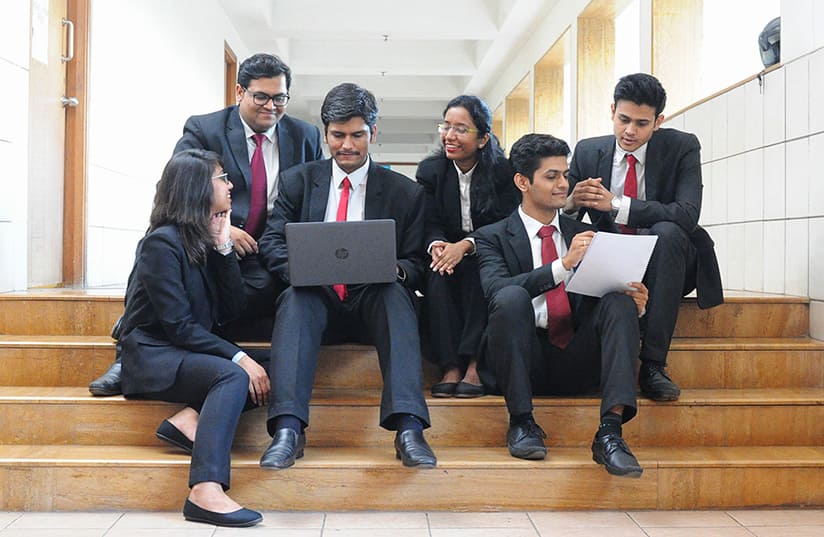
A variety of pedagogical approaches are used by Faculty in our PGDM in Marketing program. Key elements across these varied approaches are Case analysis, Learning from peers in groups, Guest lectures, Fieldwork, Internships, Live Projects.
These tools enable the integration of perspectives across functional areas, which in turn lead to students becoming proficient in not only their specialization but also other areas catering to holistic business decision-making. The choice of pedagogic methods is based on the premise that the learning experience must not only enhance the student’s practical capabilities but also instill social responsiveness.
Business Consulting Workshop by Mr Amit Ved: 9th March & 16th March 2024
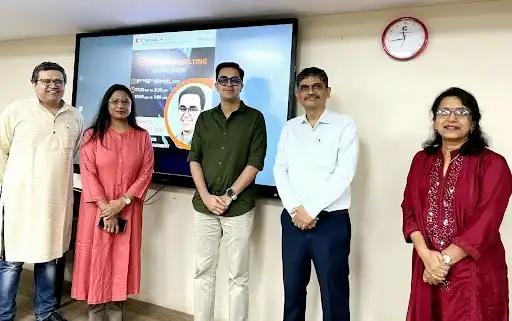
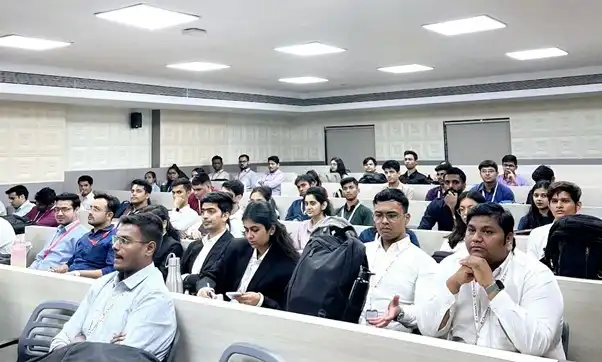
Business Consulting Workshop was organized for PGDM Marketing students during 9th March & 16th March 2024, led by Mr. Amit Ved. During the workshop, all the essential aspects of Business Consultancy were covered, which included understanding of the basics to embracing consultancy as a career. Session focus was on introduction to consultancy, management consultancy, the consulting industry landscape and industry-wise segmentation of consultants. In the workshop, students learned new mantras such as the problem-solution approach, pyramid structure of management consulting and setting the right expectations as a consultant. As a part of the workshop assignment, students prepared their own vision as consultant. Groupwise presentations were made focusing on ESG consultants, SDG consultants and Business Development Consultants etc. These tasks were a wonderful opportunity for the students to apply the skills learnt in the workshop while brainstorming future-ready ideas as consultants. Further, students received genuine feedback to nurture their prospects as consultants. Roles such as senior analyst, senior consultant, director manager, senior partner in a typical consultant firm were talked about. Furthermore, Mr Ved explained the real-world application of not only solving the problems, but precisely guided the way to the solution, as a consultant. He insisted on using a brilliant interview guideline named OPC, which stands for Open Question, Probe, Confirm. The concept of OPC gave students the confidence to perform better for placement interviews by openly asking questions, probing their points and confirming the answers they’d wished to hear.
Chetana's Knowledge Board Competition (CKBC)- Sectoral Analysis
In an effort to ignite the 'research' spark, this forum is provided to the first-year PGDM students by the library committee. The event combines the use of research, communication and managerial skills and motivates the learners to be informed of their surroundings. The rationale behind this innovative and effective pedagogy was to provide students with a platform to explore various sectors with a holistic approach and to hone the spirit of teamwork and inculcate leadership skills amongst them

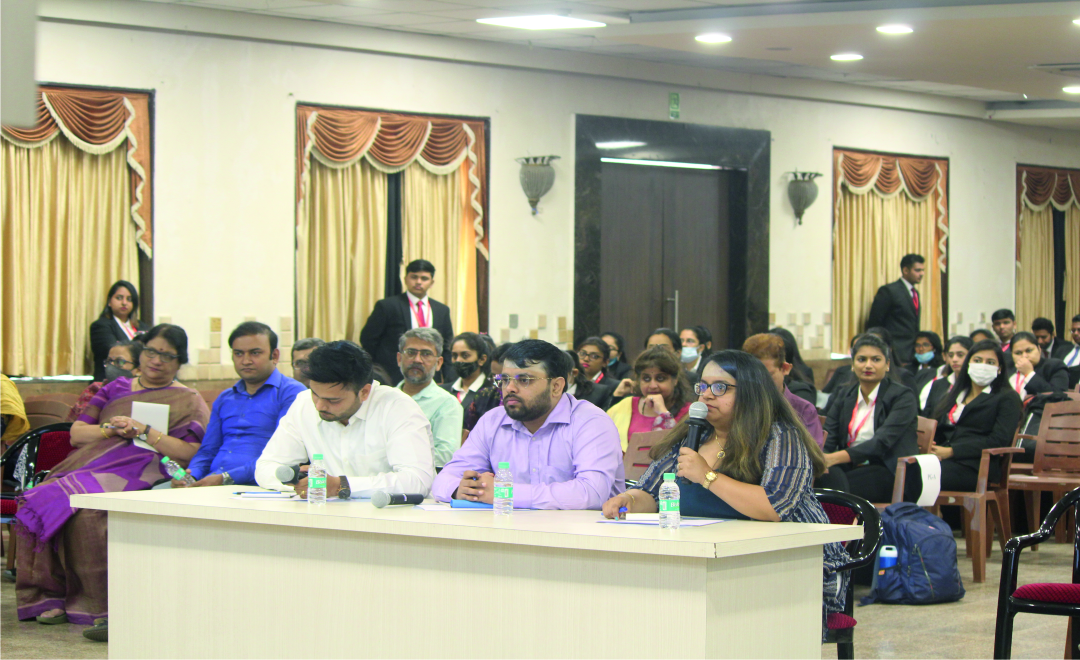
Application of Information System in Business
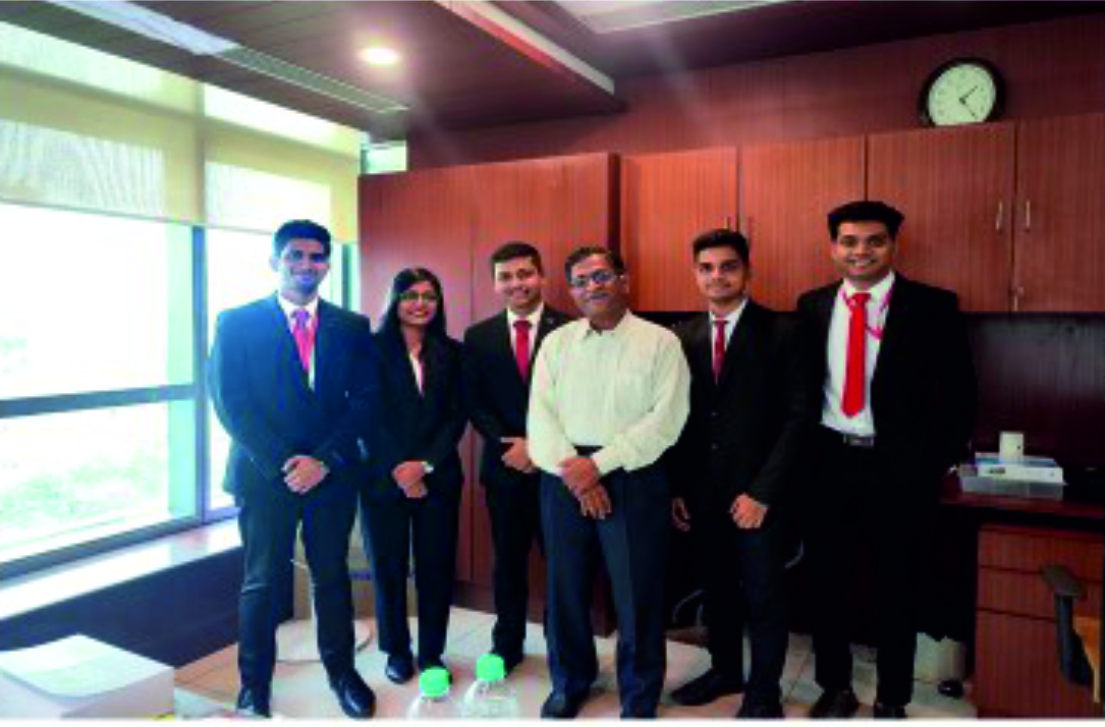
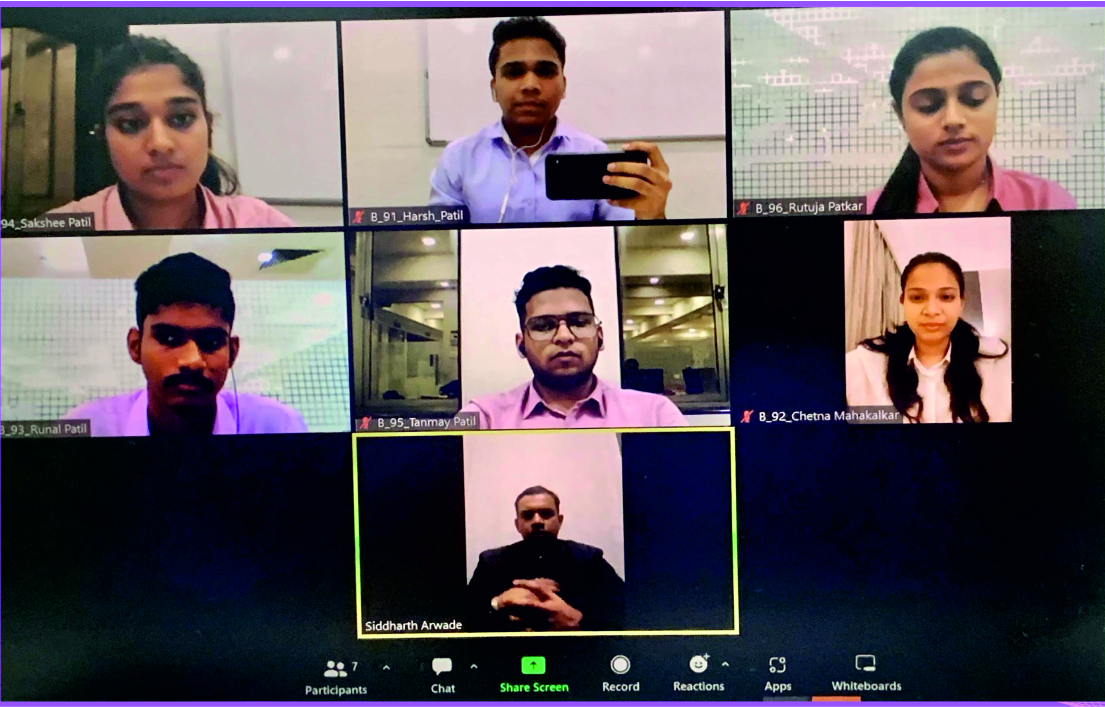
Innovation Lab
Innovation Lab wasn't an assignment to our students but the journey to reach towards excellence. During this project each division was transformed into a mock organization.
Students get the opportunity to handle the leadership roles of various departments to test their skills. Innovative organizational presentation was a process for learning the different functions of the various departments such as
The Marketing Lab
The Marketing Lab has been introduced under the PGDM Marketing Program. The students are given sales assignments to enable them to understand the sales process. This hands-on learning experience is provided through tie-ups with various industries. The sales assignment is spread over two semesters, linked to courses such as Selling & Negotiation Skills in Semester I and Sales & Distribution Management in Semester II. The students get brief from the industry on the products and services offered, after which they help the business in collecting data on the prospective clients for the business. The students develop sales pitch for the products and are further engaged in converting the cold leads into warm leads. The lab enables individual learning and peer learning and helps develop the spirit of team work.
Mercatus Club
Mercatus Club, the Marketing Club at CIMR is a student-centred body and a platform where students get an opportunity to blend marketing theories with application. It keeps the students abreast with the latest happenings in the realm of marketing domain. Mercatus organizes various inter and intra-college competitions and activities. The club facilitates interaction with the alumni and industry experts by organizing various Workshops, Master Class and Guest Lectures. The Club also has a quarterly newsletter called 'M-Quotient' which provides marketing exposure to all marketing and non-marketing students in form or articles, columns, discussions and news-bytes.
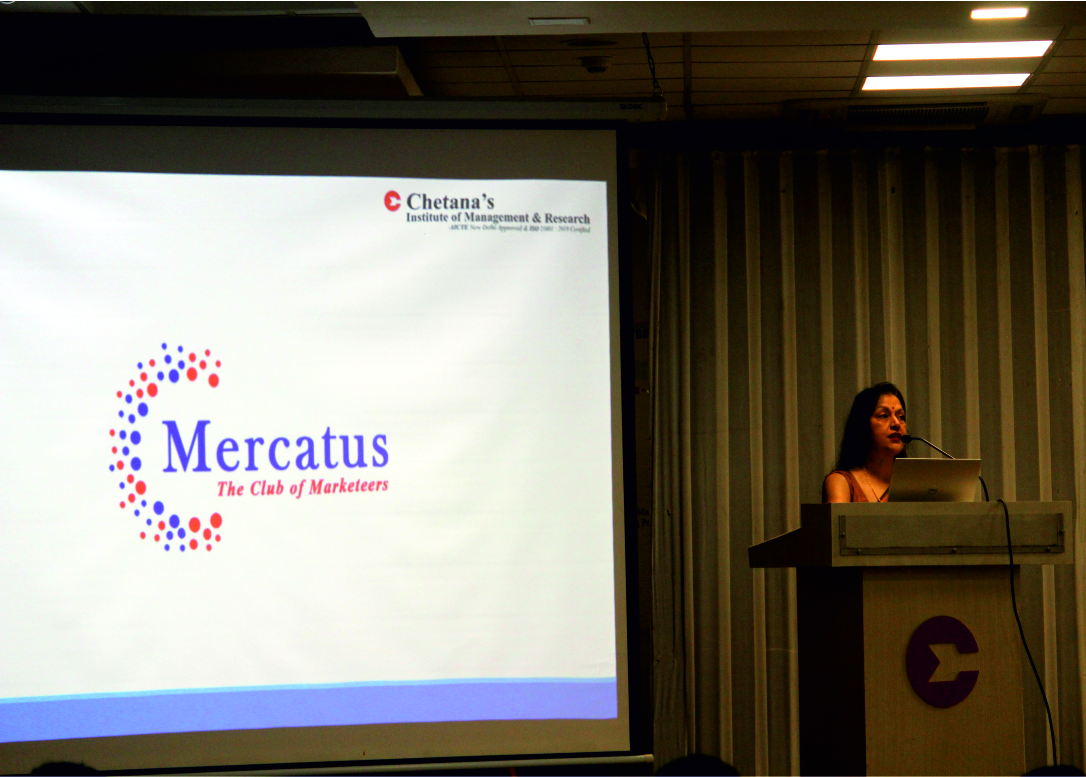
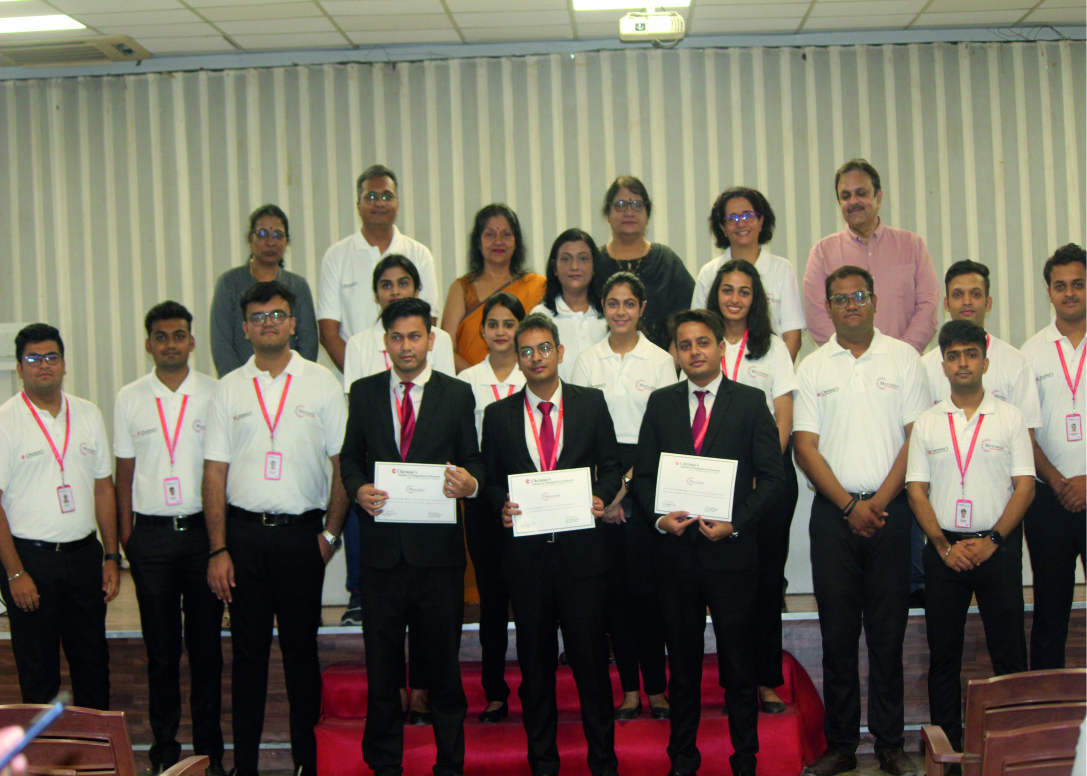


All Round Personality Development Workshop
Happiness is all about Wellness
The significance of happiness and its relationship with harmony is tremendous. The personality development workshop focusses on co-curricular activities of the students thus imparting holistic development. There are various components in the workshop, like Communication Lab, Art Appreciation, Foreign Language, Dance to your Happiness, Cross- Cultural protocols , Lateral Thinking and Emotional Wellness.
Financial Times- Past, Present And Future
Innovative pedagogy for students to understand and contemplate the past present and future of financial system and policies in India.
Finance specialization students set up teams and are given a topic to discuss. The topics are based on past present and future of Indian financial system. Students can discuss the topics at large in the form of group discussions / moderator and Panel discussions / expert opinions style. Students are expected to have an in-depth study of the topic, so that they can critically analyze the topics. The various styles of discussions will encourage the students for more extempore discussions on financial topics.
Innovative Pedagogy to learn about Financial Instruments for Investments.
NIVESH MELA
Nivesh Mela is an innovative pedagogy used to create awareness about different Financial products and Instruments available for Investments.
Students are made to work in teams and have been allotted one type of Financial product. They are supposed to know its historical risks and returns, the current trends and the companies offering such products. All teams make a kiosk or a stall where students from other specialization and other faculty come to see the mela. Each person in the audience is given Rs. 2crore virtual money to invest. The teams are supposed to convince the audience and get the maximum revenue by selling their products.
Students not only learn about the products but also understand consumer psychology and behavioral finance. Prizes at the end keep the competitive spirits high.
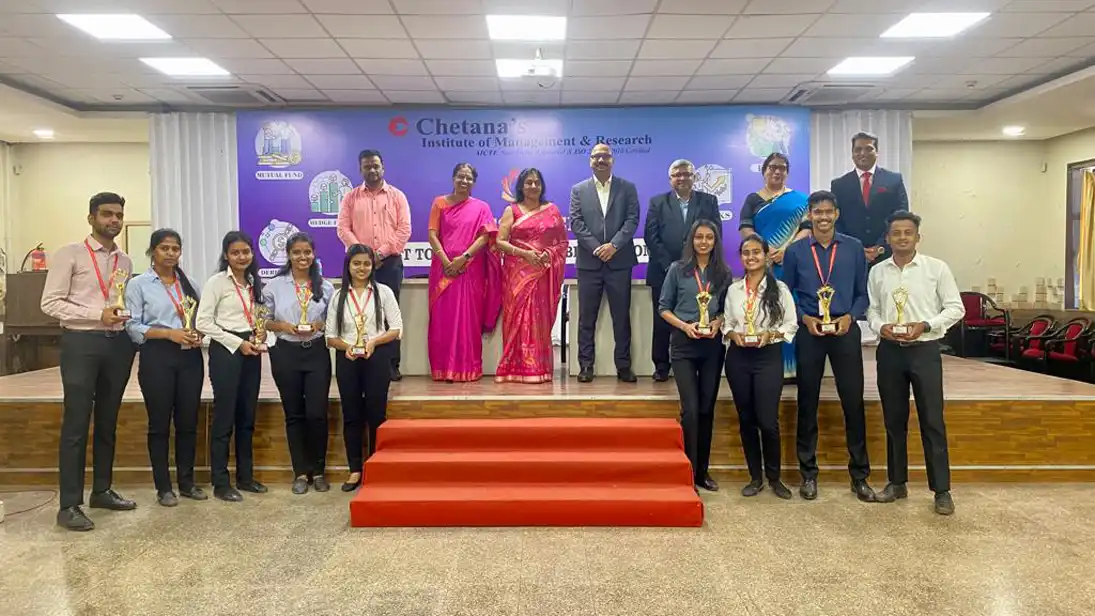
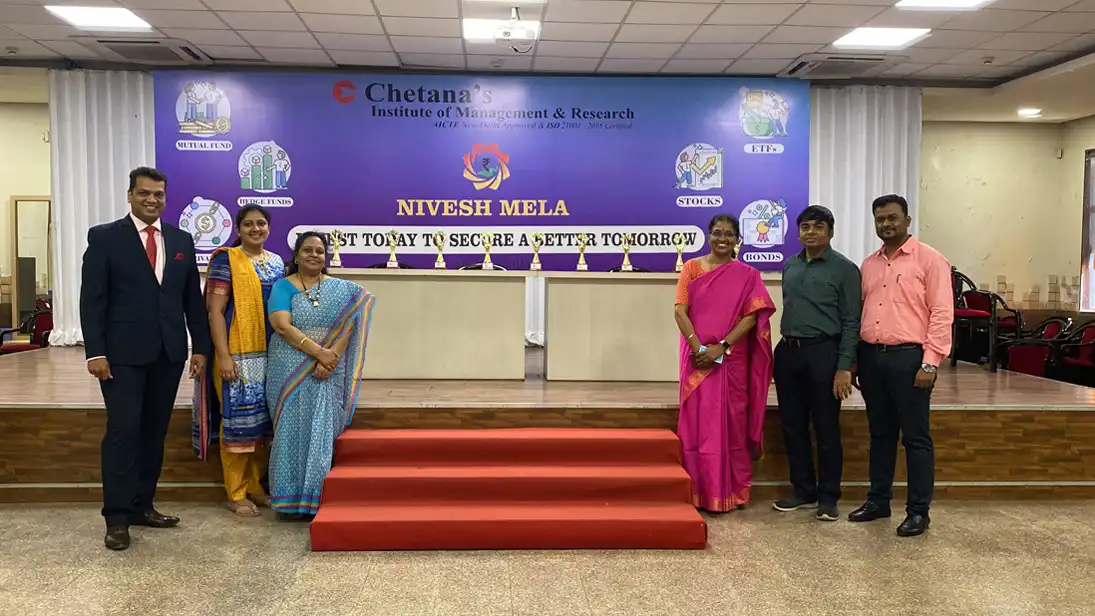
The first year curriculum aims at strengthening fundamentals in all areas of functional management and provides a holistic perspective of general management. Students undertake an 8-10 week summer internship with our industry partners at the end of the second semester. The third and fourth semesters provide inputs in the marketing specialization and are customised to the career focus of students and industry requirements.
| Semester 1 | Semester 2 |
|
1. Economic Environment of Business 2. Fundamentals of Financial Accounting 3. Fundamentals of Marketing Management 4. Fundamentals of Production and Operations Management 5. Quantitative Techniques 6. Information Systems for Business 7. Innovative Management Practices & Business Ethics 8. Managerial Communication 9. Organisational Behaviour 10. Selling and Negotiation (Marketing Lab) Value Add: Proficiency in MS Office |
1. Managerial Economics 2. Operations Research 3. Finance in Marketing 4. Fundamentals of Human Resource Management 5. Entrepreneurship Management 6. Managing Business Research 7. Marketing Management - Concepts & Cases 8. Sales and Distribution Management 9. Consumer and Industrial Buying Behaviour 10. Legal & Tax Aspects of Business 11. Marketing Application and Practices Value Add: Off-Summer Internship |
| Semester 3 | Semester 4 |
|
1. International Trade & Global Management 2. Stragic Management 3. Summer Internship Project Marketing Specialization 1. Managing Products & Brands 2. Digital Marketing 3. Services Marketing 4. Marketing Research & Analytics 5. Media Management 6. Integrated Marketing Communications Electives ( Any 1) 1. B2B Marketing 2. Marketing of Banking & Financial Services 3. Retail and E-Commerce |
1. Trends in Marketing 2. Project Management 3. Industry Oriented Project |
The case method learning is one of the most used pedagogical approaches at CIMR. Almost all courses have sessions structured around case studies.
Learning through the case method necessitates discussion of real-life decision scenarios faced by business executives. Students learn from their peers who add to the discussion through their varied experiences. In addition to the concepts that are learned through the discussion, students also learn key managerial skills such as listening, persuasion, and analytical thinking through this method. A student of PGDM in Marketing undergoes many case studies of real managerial situations during their time at CIMR.
We learn better in groups than as individuals. Most courses have a Group Evaluation Component, which may be a presentation, project, exercise, etc. This supports students to learn from one another. We also learn better when we share our learning with our peers.
Faculty members invite professionals from the industry to deliver sessions as part of courses. These experts share their industry knowledge and expertise with the students. Most courses have two sessions delivered by Industry Experts. This is in addition to the other opportunities students get to learn from practicing managers such as institute events, and events conducted by various student clubs. PGDM in marketing student has an opportunity to listen to many such talks during their time at CIMR.
PGDM in Marketing students also get the opportunity to learn from hands-on experiential exercises. Live projects provide an experiential learning opportunity, which is a highly effective way of learning. By actively engaging in real projects, students gain a deeper understanding of concepts, develop practical skills, and build confidence in their abilities.
The students of Chetana’s Institutes of Management and Research added a dash of colour this Diwali to the lives of more than 1400 street children. Over 250 students, in association with Fulora Foundation organized a drawing competition for the street children of Mumbai. The objective behind the activity was to draw the children who live in the fringes into the mainstream.
The students visited over 75 locations across Mumbai and distributed drawing sheets and crayons to children ranging from ages 2 to 15. The wonderful imagination and talent of the children was captured in the beautiful images painted by the children. The drawings made by the children were judged by an esteemed panel comprising of veteran artists and the Dean of JJ School of Art. The best drawings would be auctioned and the proceeds generated would go towards funding the education of the underprivileged children.
For the management students, the entire activity was an exercise in resource planning, manpower management and coordination. The outcome was that while they made a difference in the children’s lives, they made a difference in their own lives.